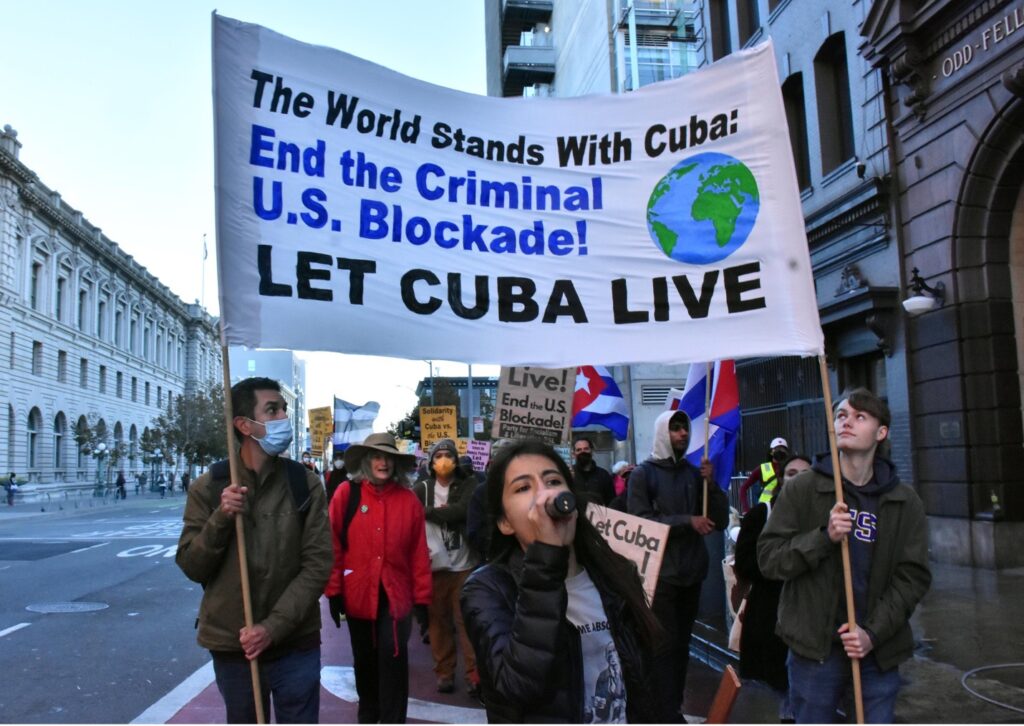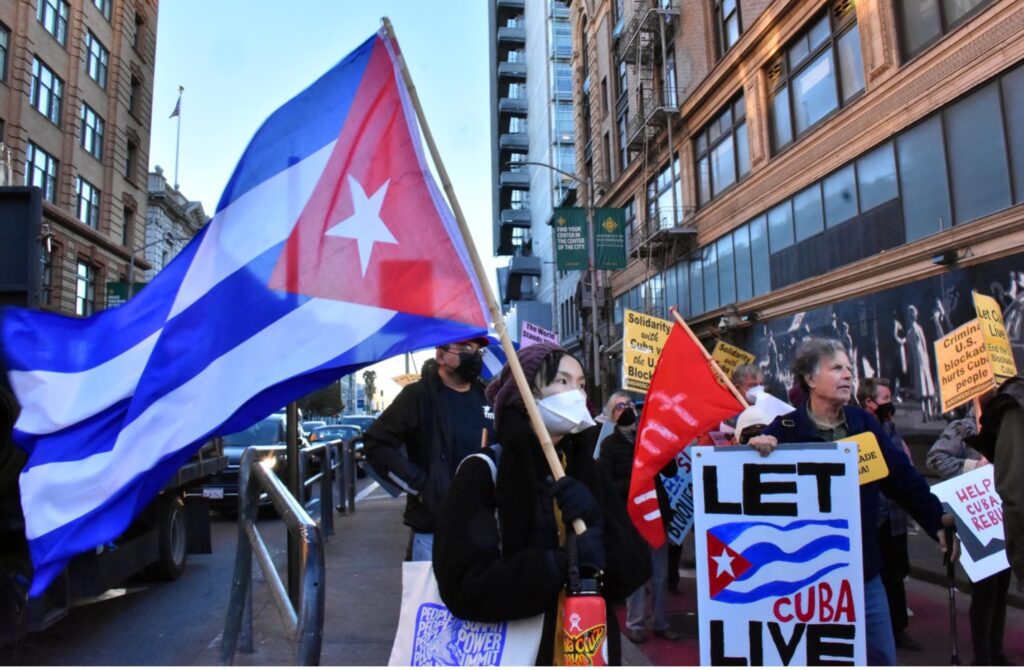On November 4, the United Nations General Assembly overwhelmingly condemned the US blockade of Cuba for the 30th time. The vote to end was 185-2, which the United States and Israel opposed, and Brazil and Ukraine abstaining.
The blockade imposes multimillion-dollar fines against banks or corporations anywhere in the world that do business with the island nation. Detailed reports estimate the damages to the Cuban economy during the last five years at more than $17 billion, and a cumulative damage over six decades of nearly 148 billion, causing severe shortages of medicine, food, and supplies desperately needed to fight the Covid pandemic.

Just a few hours after the vote, approximately 100 Cuba solidarity activists gathered for a spirited rally outside the Federal Building in San Francisco, where Speaker Nancy Pelosi has her office, and then marched to UN Plaza to bring attention to the landslide vote. This action was complemented by dozens of rallies, marches, and car caravans expressing support of Cuba that took place in various cities in the U.S. and Canada in the week leading up to the UN debate and vote. In San Francisco an important target was Pelosi, running for her 19th term in Congress. Pelosi, second in line for the presidency, had shifted from measured opposition to the embargo starting in 2008, to now lining up behind the Trump-Biden policies tightening the blockade.
In the lead up to the UN vote, Cuban Foreign Minister Bruno Rodriguez stated that the blockade has existed for over 60 years, inflicting pain on Cuban families. Rodriguez called out the 243 new coercive measures introduced during the Trump Administration. He also explained that little has changed with Biden’s presidency—during Biden’s first 14 months, the damage to the Cuban economy was estimated at $6.35 billion, equivalent to more than $15 million a day.
After the vote, US political counselor John Kelley tried to explain the country’s isolated position, arguing that the US government is “focused on the political and economic well-being of the Cuban people.” This statement, of course, contradicts the reality that the US refused to even briefly relax the blockade during the pandemic. More recently, the US government also restricted Cuba’s ability to purchase roofing materials, after Hurricane Ian destroyed more than 50,000 homes in western Cuba.

Various rally speakers emphasized the ludicrous fact that Cuba remained on the US list of “state sponsors of terrorism,” having been added to that list in the waning days of the Trump Administration, and never removed by Biden.Historically, it has been the US that has organized and financed terroristic acts against Cuba, and that globally Cuba is an ambassador of well-being and health. During the Covid pandemic, Cuba has sent 58 medical brigades to over 40 countries. Despite the stress it is under, Cuba is sharing its self-developed Covid vaccines at low cost, and assisting countries to build vaccine manufacturing capacity.
Speakers at the rally noted that in 2020, San Francisco became the first major city in the US to pass a unanimous Board of Supes resolution against the blockade and for medical cooperation with Cuba. Similar resolutions have now passed in 65 cities and jurisdictions. Demonstrators insisted that to represent her constituents, Pelosi should urge President Biden to take Cuba off of the state sponsors of terrorism list and end the other Trump sanctions “with a stroke of his pen.”





